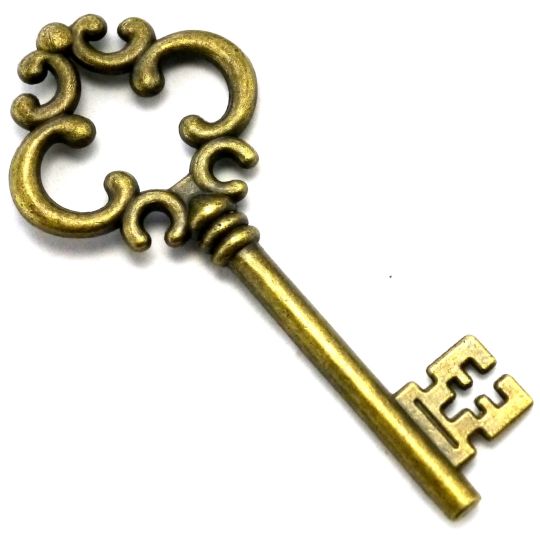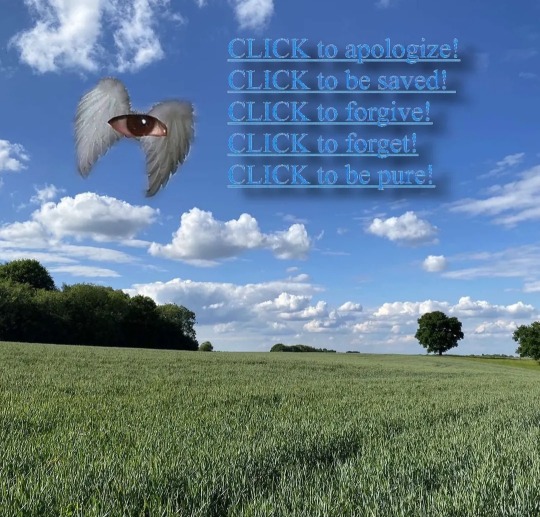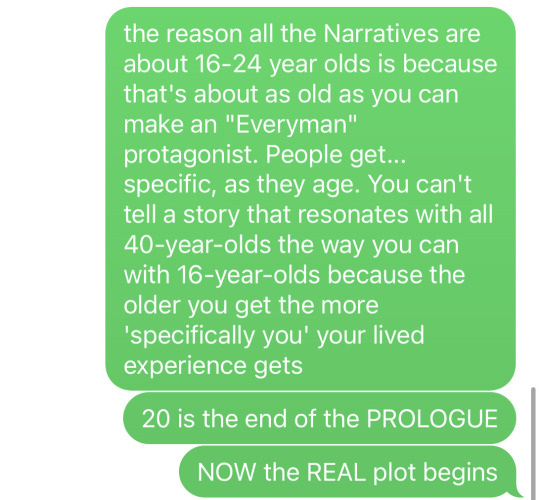Text
19K notes
·
View notes
Text
15K notes
·
View notes
Text
Advice if you love/care about an addict but they're not ready for abstinence. This is meeting people where they're at- the most important part of harm reduction
27K notes
·
View notes
Text

time of year i remind every cane user to get an ice pick so you dont fall and die
38K notes
·
View notes
Text
25K notes
·
View notes
Text
Commentary on Corpus Hermeticum X: The Key

My commentary on one of my favorite books/chapters from the Corpus Hermeticum. Was written some time ago but I still concur with everything here. I use Brian Copenhaver's Hermetica as my translation.
[1] We are introduced that this is Hermēs speaking to Tat—a summary of the lost General Discourses.
God and the Good are indistinguishable from one another, according to Hermēs. They have the same activity, for activity differs from nature in that nature is the increase and decrease of things that move and change(namely things on earth). Therefore we as humans, participate in bother activity, which belongs only to the unmoved, ie. God & The Good, and nature. I’m reminded of Iamblichus in that the human soul is endowed with a sort of otherness (heterotēs) but I’m jumping ahead.
[2] The first two sentences present to us that God's only activity is to Will All Things into being. Namely, things that have begotten and the unbegotten’s very ουσία, or essence, is that from the Will of God.
The Cosmos and Sun are also Fathers to things that merely participate in nature (plants and animals) and things that participate in both activity and nature(humans). The Sun and we, as humans, don’t cause Good or Life, but we are merely participants in the Good and activity of Life. But because the Sun and Cosmos are the “Father” to things by participation, the only reason/cause of that is through God, the only Supreme Good.
[3] When God the Father “receives the appetite for the Good, by way of the Sun…” I take this to mean by our veneration and reverence to the Sun, God indirectly receives the appetite for the Good, but surely God’s Will transcends human Sun worship, right? This is why we the next contradictory sentence where the Father “…receives nothing but Wills all things to be.”
Next, we are given the distinction between one who makes vs. one who “wills” i.e. God. Humans make things regarding wanting both quality and quantity, sometimes we create, sometimes we rest. This is not true for God, who Brings All Things into being. Remember the essence of things is to come, things that have come, and things that will never come, are the very substance of God. If we dare to say God has an essence or substance.
[4] Tat sends his kudos to Hermēs for bestowing him a vision so good and beautiful it nearly blinds his “mind’s eye.”
We are then told that the vision of the Good is not like that of a ray of the Sun—which “dazzles the eyes and makes them shut.” The vision of the Good illuminates and pierces the mind, but does not harm. This vision of the Good illuminates us, in so much as we are ready for such reciprocity of such a great vision.
[5] I’m going to need to do some more digging into this Ouranos and Kronos reference that they were able to "drink somewhat more deeply of the vision..."
The rest of the paragraph I believe explains why Tat described this vision of the Good as almost “blinding” his mind’s eye. Too shed any of our 3 eyes upon the incorruptible, ineffability of the Good that is God— indeed we are too weak to look upon and ultimately fathom such a pure essence, in my my most humble opinion. Referencing the Stobaean Hermetica SH 1: We have a clear description of God's ineffability. Hence the text states that there’s a “divine silence” and a “suppression of all the senses,” when in the moment we "see the vision"
[6] We continue with the text stating the ineffability and Unfathomablity of one who has begun to understand, after having to still our senses via meditation—the Hermeticist can see nothing but the Good that is God. Having understood the Good, that beauty “kindles his whole soul and by means of body draws in upward…” Through our bodies, we still our minds and bodily senses. We must choose to do this, just as we would choose to harm other things or love another thing.
“…and beauty(the Good) changes his whole person into ουσία or essence. This is henosis.
The last sentence supports that, for having looked upon such a Good vision, we cannot be deified while attached to things that change, i.e. our bodies. This kind of thought that our bodies, or embodiment in the physical, is an obstruction to Oneness, yet also the way to Oneness, or henosis, is highly similar to Iamblichus. He describes it as human souls having the most degree of “otherness.” In this specific case, in the last two sentences of paragraph 6, our otherness sways our decisions to choose the Good.
[7] Tat incurs what Hermēs means by deification. He reminds Tat that all souls hail from the one soul of All—God. Though many changes occur—this whole paragraph really just supports animism & reincarnation I think. Nothing is without Soul, from the the corporeal beings and incorporeal beings. At the end of the paragraph though, what strikes me is that after the areal souls are changed to humans, we change to daemons, by becoming daemons ( perhaps this happens after death…?) we enter the troops of the gods ~yay~. Which are fixed(the heavenly spheres) and ones that move (the stars and constellations).
[8] entering the troops of the gods is the soul’s most perfect glory. Viciousness can enter the human soul though upon, which inhibits the person from tasting the fruit of the Good and rushes back towards earthly and material things. This is the vice of all things for the soul: ignorance. To be reverent is to discern the copies of the names of the Good from the evil that’s on the world. When we are ignorant, our souls are blinded to discernment. We become slaves to the passions of the body ergo we become ruled; instead we should rule our desires and passion and not be slaves to them.
[9] The virtue of or antidote to ignorance would obviously be gnosis, or simply knowledge. We are then given the difference between knowledge & understanding vs. sensation. Though we cannot live without such sensations; knowledge differs from this in that sensations are preceded by the objects around us, while knowledge is a gift from God.
[10] All learning and knowledge is incorporeal. Yes, books are animate objects, but to read the book, which we CANNOT do without our senses. The mind employs the body’s senses to absorb the incorporeal information. Hence everything is a result of contrariety and opposition. Both sense and knowledge enter the mental and the material. It cannot be one without the other.
Tat ask who the material is. Hermes responds "the Cosmos." The Cosmos is surely beautiful but it is not Good. That belongs to God and God only.
The rest of the paragraph threw me a little. I believe it’s telling us the Cosmos though it was created second, it is still incomplete because the forever churning and moving of the Cosmos is infinite—ergo, the Cosmos was created but always existed. If God’s will is to namely will All Things into being, then His willing of the Cosmos always was and always is.
[11] The unmoved Nous moves matter like this: think of the Cosmos as a head, a sphere, nothing material above it and nothing composed of mind below it. Think of the Mind like the Cosmos. The Mind and everything connected or close to it, i.e. our senses(eyes, ears, nose, and mouth) are, in a way, the soul or the person's senses of the soul. What is further away from our senses & mind ie. our limbs and the rest of our body are composed of more body than soul. To me this makes sense. And like the Cosmos, we are a mirror of the Cosmos in that we are both constituted of the mental(nous) and the material(matter).
[12] I imagine this paragraph was popular among Renaissance Christians to give validity to the concept of original sin—now I don't agree with the Christian concept of original sin, as per Corpus Hermeticum I: Poimandres gives a clear account how we aren't "born into "sin." Whatever that means (rolls eyes).
In this paragraph we are told the Cosmos, because it moves is not Good(which belongs only to God) but it not evil either because of its infinite expansion, i.e. its immortality. The human on the other hand, though being a mirror of the Cosmos, as being both constituted of both material and mental, and because our mental can also bring us to evils and vices. This is why we are evil and not Good: Because we move, i.e. are subject to change, and are mortals. This is not suggest we are "born into evil" though. All this is saying is that our otherness (mortality/physical self) is, most of the time, opposed to the incorporeal aspects of ourselves. We must recognize our bodies for what they are, and what they can drive us to do: namely, our bodies can drive to us evil.
[13] Next we are given how the human soul is carried. The Nous is in reason; reason lies in the soul; soul is in the spirit. The spirit can be understood as Qi if you’re familiar with a little Taoism. The spirit is our blood, the life force within us that keeps everything moving and functioning properly. Some mistake the soul is blood. Our spirits are withdrawn into the soul at the time of death, the text says this destroys the body but I think it should say “dissolves” the body. As we are told in Corpus Hermeticum VIII that nothing in the Cosmos is destroyed.
[14] This paragraph also seems like this would be used by Christian’s of the renaissance period to give the “Triune” more ancient validity.
All things depends from one beginning: the Will of God. God is the unmoved mover. He does not move or make, but Wills. They are three then: God the Father that is the Good, the Cosmos and lastly mankind. We being grandsons of God, so to speak. Putting my Christian hat on rn, some might argue that the Son of God, Jesus is the perfect example of the Cosmos; him not being Good due to his embodiment, but neither evil either because Jesus was immortal(he rose 3 days later). So by only venerating and worshiping Jesus, is how we too become “sons and daughters of God”). Removing the Christian hat now, this means that we all have the capacity to become perfect images of the Cosmos, and attain apotheosis, just as Jesus and many before him achieved. To think that only one man from the 1st century CE in one tiny part of the world, Judea, was the only one to be able to obtain this is silly and and pretentious. We all have the capacity to become perfect images of the Cosmos and become son's of God.
[15] This first part of the paragraph I would use, and others, to show that The God of in the Hermetica is not understood in a deist kind of way. For God recognizes us and wishes us to pursue the path of gnosis—the only deliverance to God.
Next Hermēs explains why or how the human soul becomes evil—via ignorance, the greatest of all vices. He paints a picture of that of the soul of a child, presumably still in the womb: ״its body has not yet attained its full bulk {of which it has only a little as yet.}” being not yet subjected to the passions of the body, as the baby gets ready to pop, the soul is further dragged down into embodiment. Thus having the soul fully descended into the body, the soul becomes separated and gives birth to the forgetting of the Good (God).
[16] Now Hermēs explains that the same thing occurs at the time of death. The breath draws itself up into the blood and the souls into the breath(spirit). But those with Nous, after it has been stripped away from the material covers(the flesh), because Nous, or Mind, is God-like by nature, exits the soul and takes on a body of fire, that ranges to no ends.
[17] Hermes replies to Tats question at the end of paragraph 16. Mind is so Good and Great that an earthy body is not enough to sustain such divinity that is, Mind, or Nous. Nor can Nous come into direct contact with a body riddled with such passions and vice, thus the mediators: Soul & spirit. Mind takes the soul as a shroud or a protective covering between Mind and body. Spirit acts as sort of a reinforcement agent for the soul that governs our physical and mental bodily functions.
[18] Nous when separated from the body, equips it’s own tunic of fire—hence why the soul is the Minds shroud. For the reason why most our bodies are made of water, is because Mind takes form of the most penetrating of all elements: fire. And fire burns up earth as soon as it touches it. The Nous of God wills everything divine—the nous of humans makes everything earthly. Mind has been stripped of its fire in the human body, ergo we cannot create divine things (in the same manner as God's will).
[19] On the human soul again—the one whose reveres the One (God), is in a way both composed of the demonic and divine. Meaning we possess both our divinity, our mental, as well as your material physical bodies which causes us vice—this is how we are also demonic. Our soul can become “wholly Mind” after being freed from earthly bodies and doing no wrong unto another person, while striving for gnosis of the divine—that is the fight of reverence which we must participate in.
Some souls are irreverent though—these souls constantly seek earthy, human bodies to enter into. Being ruled by its own essence (the vices of the body), the soul punishes itself. We are also told how when human souls are reincarnated, they most certainly are not reincarnated into animals—God prevents this and does not want this.
[20] Another apologetic paragraph that could’ve been wielded by the Muslims and Christian’s. This paragraph is on how the soul is punished. Hermēs responds to Tat by saying “What greater punishment for a human soul, my son, than irreverence.”
I can personally attest for this, but this doesn’t mean that an atheistic path can’t lead you to divinity or that ultimate and supreme Good. The path of irreverence just wasn’t for me. It led my life down a path of utter obliteration of the mind and body. What changed my life was my ability to start believing in “higher powers” again. Hermes further refutes that our punishment is reincarnation into other animals and affirms that the greatest punishment of the human soul is irreverence.
[21] Hermēs further explains the punishment of the soul. When Mind enters into the irreverent soul—Nous afflicts that soul with vices of the bodies: slander and murders; ignorance. But when Nous enters a reverent soul—it cannot get its full of prayer and hymning. Always seeking to help and do good unto others—doing everything in the name of God.
[22] We must pray to God to acquire a Good Nous. Some maybe born more reverent than others. I certainly was born more irreverent than some I think.
After having acquired such a Good Mind—we can pass into something greater, but never something lesser. The gods commune with humans, and humans rule the non-reasoning things, yet we must not forget God takes charge of them All.
None are less or greater than the One. We can think of “God’s touch” on everything the same way we understand how astrology works kind of. The rays of the Cosmos employ the energies of God to shine down upon mankind. We receive these energies thru the natural forces of the Cosmos. These natural forces work thru the elements, and humans work thru the arts and learning. Meaning we express God’s energies thru out creative expression—and thru attaining gnosis.
[23] Here we are told that the governing force of the universe is indeed from the One Mind—the One Nous—GOD. nothing is more God-like than Mind. For we use our Mind to connect with entities higher than ourselves, and nothing is more capable of uniting us to the gods and the gods to us than reverence and the Good Mind, that is God. Not every soul is blessed with a Good Mind, hence why we must acquire it—some more than others (me). Hermēs makes it clear he is talking about The Mind and not the servile, human mind.
[24] Without Mind one can neither do, nor say anything. How powerful is the Mind. For when we become overcome by the emotions and passions of the body, Mind flies out of the soul and we act like un-reasoning animals. We neither see or hear anything once Mind flies out of our soul in such a way. Next, we see how in a sluggish or irreverent soul, Mind cannot endure and “leaves it behind.”
NO God does not abandon us. God didn’t want to make mindless robots to always do good. God wants us to choose the Good Mind. No one can force you to accept the teachings or the Good Mind—not even God. Hence why it is stated — the true human, or reverent human soul becomes greater than or equal to the gods. Gods are immortal yes, but we posses both the immortal and the mortal—no other of God’s creation has the power. How great and torturous is the power of mortality and immortality? Without both we fall short.
[25] I think this paragraph further supports my conclusion on paragraph 24. The gods when they come down to earth, do not leave the bounds of heaven behind them, yet the human has the ability to reach the heavens and measure its heights, while also not leaving earth behind. To me this is describing how a reverent human can have mystical, henosis like experiences while keeping his or hers sanity. They stay grounded in the things that ~are~ and doesn’t ignore the cries from the needy to simply just have mystical experiences. Hermēs goes on to boldly say that God is a immortal human and that man is a mortal god, meaning the power of our mortality and immortality. All things: the Cosmos and humans exists solely because of God.
7 notes
·
View notes
Text
100K notes
·
View notes
Text
decolonizepalestine.com is an easy to navigate website run by two palestinians which breaks down common myths about palestine and provides a reading list organized by a wide variety of categories ranging from history and culture to media and censorship. it’s a good starting point to use if you want to learn more about the modern day situation in palestine and understand the truth behind myths that have been perpetuated about israel’s occupation of palestine.
90K notes
·
View notes
Photo

How To Get Active And Get Organized!
Five tips for forming an affinity group
Crimethinc: How To Start An Affinity Group
Sprout Distro: How To Start An Affinity Group
Rebel Steps: Community support and mutual aid
Want to start a tenants’ association? Here’s what you need to know first (WaPo)
How to organize a tenants’ union (TenantNet)
Form a tenants’ association (HomeLine)
Food Not Bombs handbook
Food Not Bombs materials and books
Principles of harm reduction
What is harm reduction? (Harm Reduction International)
Getting started in union organizing
Is it time to start a union at your workplace? (spoiler alert the answer is yes)
Building working-class defense organizations: An interview with the Twin Cities GDC (It’s Going Down)
Practical organizing for antifa and beyond
https://www.iww.org/content/join-one-big-union
6K notes
·
View notes
Photo

How To Get Active And Get Organized!
Five tips for forming an affinity group
Crimethinc: How To Start An Affinity Group
Sprout Distro: How To Start An Affinity Group
Rebel Steps: Community support and mutual aid
Want to start a tenants’ association? Here’s what you need to know first (WaPo)
How to organize a tenants’ union (TenantNet)
Form a tenants’ association (HomeLine)
Food Not Bombs handbook
Food Not Bombs materials and books
Principles of harm reduction
What is harm reduction? (Harm Reduction International)
Getting started in union organizing
Is it time to start a union at your workplace? (spoiler alert the answer is yes)
Building working-class defense organizations: An interview with the Twin Cities GDC (It’s Going Down)
Practical organizing for antifa and beyond
https://www.iww.org/content/join-one-big-union
6K notes
·
View notes
Text
look motherfucker stop judging me. at least im not doing meth. remember when it was meth? at least im not fucking killing myself anymore you dumb whore ( i tell myself while rolling the 5th blunt of the day at 3am) stop feeling fucking ashamed for this tiny little minuscule crevice you peak out of trying to “escape” when you were LAUNCHING your soul DAILY into a wall looking for a window that was never there.
0 notes
Text
im like if a girl was {undefined variable}. im like if a girl was [fragment missing]. im like if a girl was (editor’s note: the author’s invocation of the word “girl” in this context is idiosyncratic, perhaps metaphorical) im like if a girl was im like if a girl draft deleted! im like if a girl You have reached your free article limit! Subscribe now to continue reading. im like if a girl was [THREAD LOCKED] im like if a girl (ENDING EXPLAINED!) im like if a girl Unusual activity detected, please highlight all the pictures of bicycles. im like if a girl I don’t respond to prompts that could be deemed offensive, and so I am unable to carry out the request. im-like-if-a-girldeactivated03092023. im like if a girl we are unable to take your call at the minute. im like if a girl isn’t registered under that name. im like if a girl could give you her date of birth. im like if a girl oh yes we have you under […]. im like if a girl LOST CONNECTION
52K notes
·
View notes






